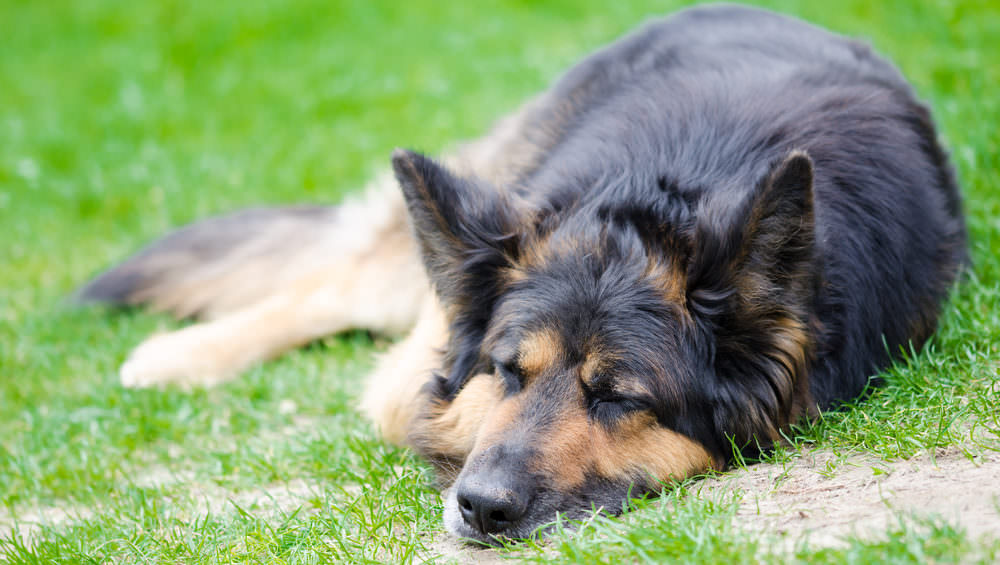
German Shepherds are loyal and majestic companions, known for their boundless energy and devotion, and have rightfully earned their place as one of the most beloved breeds. But what happens when the sparkle in those intelligent eyes is overshadowed by constant itching and discomfort from allergies? Skin health is important for dogs, and addressing their itchiness becomes an act of love and compassion. Nurturing your German Shepherd’s skin, revealing the art of soothing their itchiness, and restoring radiant confidence and energy is something every dog owner hopes to achieve for their pup. From identifying the root causes to creating a personalized care routine, it is time to rediscover the hidden beauty beneath those relentless scratches and embark on a path to lasting skin health.
In this guide, we’ll explore 6 natural ingredients that can help minimize the symptoms of allergies in your German Shepherd.
6 Natural Supplements To Help Your German Shepherd’s Itching & Allergies
#1 – Colostrum: How An Ingredient Found in Mother’s Milk Can Help Your German Shepherd Stop Itching
Many people call colostrum “mother’s first milk.” That’s because it’s the first nourishment dogs receive as newborns. It’s full of all the benefits that puppies need to grow big and strong. But as it turns out, it can continue to benefit canines through all their life stages.
Allergies occur due to an improper immune system response. So, this ingredient provides high levels of antibodies, which will help support a healthy immune system. Colostrum is also packed with amino acids, which have growth and immune factors, along with enzymes and proteins to help with cell renewal. So, whether your dog is a puppy or a senior, treats with colostrum can keep them feeling young!
Colostrum for dogs can be a bit hard to find. Our favorite easy source is this soft chew supplement which is also available on Amazon.
#2 – Reishi Mushrooms: Yes, Some Mushrooms Are Good for Your German Shepherd!
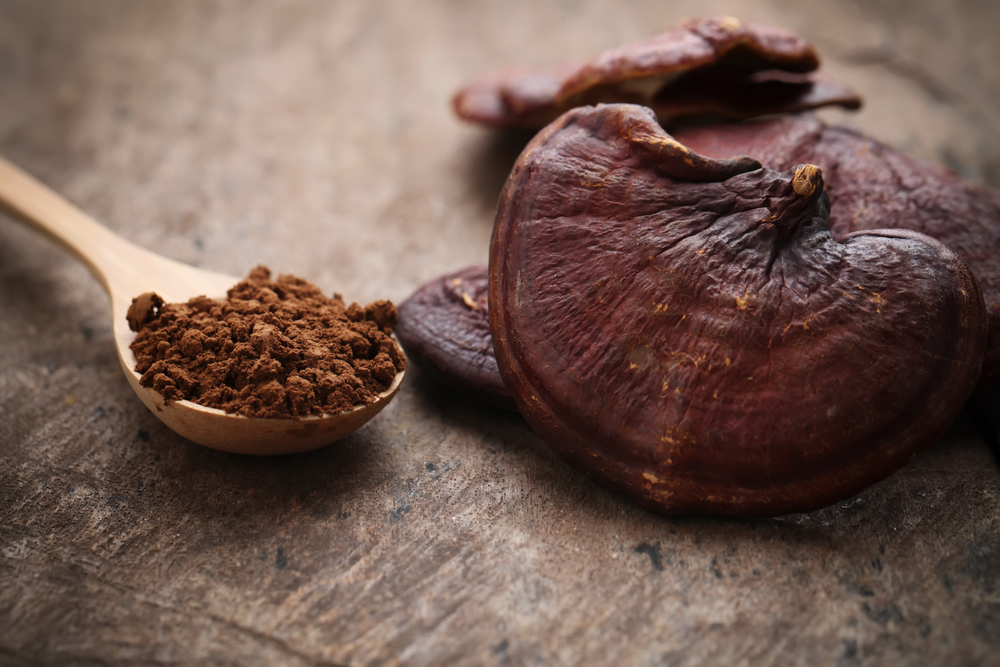
Reishi mushrooms provide countless benefits for dogs, including eliminating allergies, boosting the immune system, protecting the liver, regulating blood pressure, and supporting kidney health. They do this because they contain ganoderic acid. Ganoderic acid is known for preventing the release of histamines, which trigger allergic reactions.
Reishi mushrooms are also packed with antioxidants and anti-inflammatory properties, which can reduce allergy symptoms. In addition, they can relieve common allergy-related issues, such as itching and respiratory problems. Some popular supplements, such as this, contain reishi mushroom in the formula. Our favorite Reishi supplement is also available here on Amazon.
#3 – Apple Cider Vinegar: The pantry staple that can reduce your German Shepherd’s allergies
Apple cider vinegar has anti-fungal and anti-bacterial properties. Thus, it’s great for relieving allergy symptoms, such as dry, itchy skin. In addition, it’s often used as a home remedy for irritated skin for both humans and dogs.
Some pet owners like adding a small amount of apple cider vinegar to their dog’s water bowl. Alternatively, some popular dog supplements contain apple cider vinegar. (also available on Amazon)
#4 – Salmon Oil: Perhaps the single most vital supplement for relieving your German Shepherd’s allergies
Salmon oil is a great source of omega-3 and omega-6 fatty acids. Omega fatty acids are great for supporting a healthy immune system, keeping your dog’s skin and coat healthy, promoting a healthy heart, and improving cognitive function. Salmon oil also helps your dog’s skin go from itchy and irritated to soft and shiny.
Not all salmon oil is created equal. Look for an unrefined salmon oil product, preferably from Norway for its ultra-purity. (our favorite, here). (Also available on Amazon)
#5 – Probiotics: Your german shepherd’s gut needs this “good bacteria” to fight itching
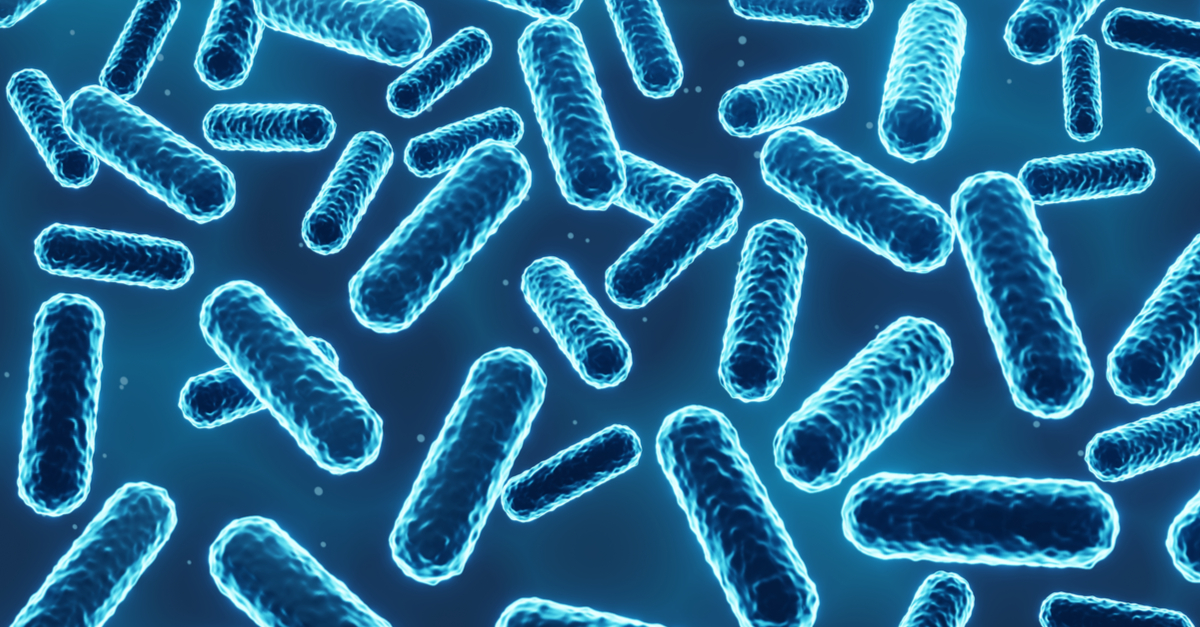
Probiotics can eliminate dog allergies by building a strong immune system. Probiotics also promote healthy digestion and intestinal balance. Canine probiotics can be found in many forms, but are included in some allergy formulas by default.
#6 – Quercetin – “Nature’s Benadryl” is the hottest trend in canine allergy relief. Here’s how it can help your german shepherd.
In recent years, quercetin has become very popular as a natural canine allergy treatment. Known as “nature’s benadryl” this compound fights inflammation in the body. Quercetin can be given to your dachshund easily in supplement form. Many quercetin supplements are also available on Amazon.
The Simplest Way to Give All 6 of These Ingredients to Your German Shepherd
The iHeartDogs® Happy, Healthy™ Allergy & Itch Relief for Dogs is the perfect and natural way to reduce dog allergies. It not only provides allergy and itch relief for canines, but it also benefits their all-around health. From immune systems to digestion, these treats will have your dog feeling young and vibrant at any age.
Also Available On:
Recap: 6 Natural Food Supplements That Can Improve Your German Shepherd’s Allergies
All 6 ingredients are available in one easy soft chew for german shepherds
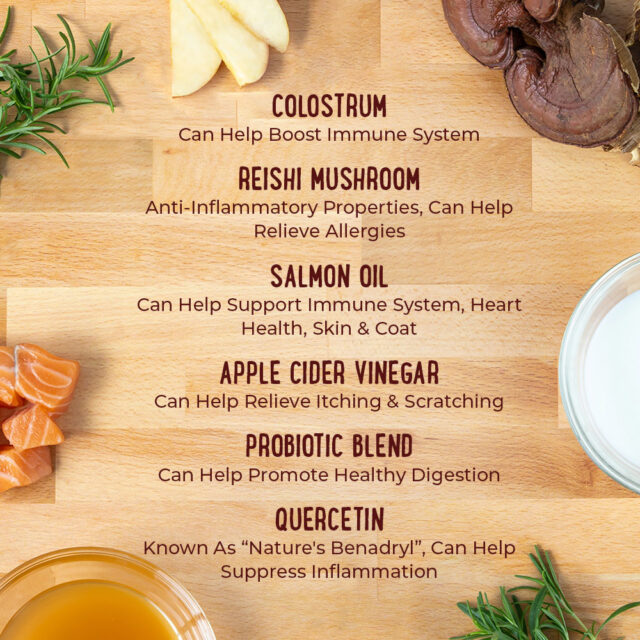
7 Common Symptoms of Allergies in Your German Shepherd
Many german shepherd owners may be unsure about whether their german shepherd is experiencing allergies. Here’s 7 symptoms commonly seen:
- Your german shepherd is biting their paws
- Discharge from your german shepherd’s nose
- German Shepherd repeatedly licks one area on their fur or skin
- Your german shepherd is scratching their ears or suffering chronic ear infections
- German Shepherd is chewing one specific area of their body, often causing a rash
- German Shepherd experiencing itchy or runny eyes
- If your german shepherd experiences diarrhea or vomiting, he or she may be experiencing a food allergy (rather than an environmental allergy)
Always seek advice from your veterinarian when seeking to relief your german shepherd’s allergies and itchiness. Your vet knows your dog’s individual situation best!
Top 9 Pet Insurance Plans for German Shepherds (2022)
Frequently Asked Questions About German Shepherds and Allergies
1. What Foods Are Harmful To German Shepherds?
Like all dogs, German Shepherds have certain foods that are harmful to them if ingested. While we love sharing our plates with our most beloved family pups, not all human food is safe for them. Here are some foods that can be harmful to German Shepherds:
- Chocolate: Chocolate is dangerous to dogs due to theobromine and caffeine. Dark chocolate and cocoa powder are even more toxic.
- Grapes and Raisins: Grapes and raisins are toxic for German Shepherds, even in small amounts, as they can cause kidney damage.
- Onions and Garlic: Onions and garlic, whether raw, cooked, or powdered, contain ingredients that can damage a dog’s red blood cells and lead to anemia.
- Xylitol: XXylitol is an artificial sweetener commonly used in sugar-free products. Ingestion can cause insulin release in dogs, leading to low blood sugar and life-threatening complications.
- Alcohol: Not only is Alcohol not allowed for individuals under 21, but Alcohol is not safe for dogs. Like humans, Alcohol can cause alcohol poisoning in dogs, leading to symptoms like vomiting, diarrhea, coordination problems, and even coma or death.
- Bones: Cooked bones can splinter and cause internal injuries or blockages in a dog’s digestive system.
- Dairy Products: Many dogs are lactose intolerant and may experience digestive upset if they consume dairy products like milk, cheese, or ice cream.
- Raw Meat and Eggs: Dogs pose the same risk as humans when ingesting raw meat and eggs. Raw meat and eggs carry bacteria like Salmonella or E. coli, making your dog sick.
- Fruits with Pits: Fruits such as peaches, plums, and cherries contain cyanide in their pits, which can be harmful if ingested. Always remove the pits before giving these fruits to your dog.
2. Why Does My German Shepherd Have Scabs All Over His Body?
If your dog is experiencing this issue, it may be time to consult with a veterinarian for a proper diagnosis and treatment. However, here are some common reasons for scabs on a dog’s body:
Allergies: Some dogs have allergies to various things, including food, pollen, and shampoo. These allergies can cause itching and scab formation.
Fleas and ticks: Those pesky fleas and ticks are not only bothersome, but even one bite can set off an itching frenzy and leave behind scabs.
Mites: Mites are microscopic troublemakers that can give your dog a bad case of itchiness and cause scabs.
Infections: Bacterial or fungal infections can lead to scabs, often triggered by other issues like allergies.
Dry Skin: Sometimes, dogs get dry or flaky skin that makes them scratch and form scabs. Dry skin can happen due to dry weather, too many baths, or certain shampoos.
Hot Spots: These are painful, red, and oozy patches on the skin that your dog might lick and scratch.
Environment: Your dog might encounter irritating stuff outdoors, like prickly plants or chemicals, which can scratch their skin and cause scabbing.
Autoimmune Illnesses: In rare cases, autoimmune issues can mess with their skin, leading them to scratch.
3. How Do I Keep My German Shepherd Skin Healthy?
Maintaining healthy skin for your German Shepherd is crucial for their overall well-being. To ensure optimal health, feed your pet a balanced diet based on their specific needs, and always consult with your vet for advice. Ensure they have constant access to fresh water to stay hydrated. Regular grooming is crucial for maintaining a healthy coat and promoting skin health and circulation in dogs. Brushing is an effective way to remove loose hair and dirt. During baths, it is recommended to use a mild shampoo specifically designed for dogs. Overbathing should be avoided as it can strip the natural oils from the coat. If your dog has specific skin issues or allergies, follow your vet’s recommendations for medicated or hypoallergenic shampoos and bathing frequency.
Stay updated with flea and tick prevention, as these parasites can cause skin irritations. Routine veterinary checkups help monitor your dog’s skin and overall health, especially if they have a history of skin problems. Work with your vet to identify and manage allergens in cases of allergies. Protect your dog from harsh weather, ensure regular exercise, maintain a stable environment to minimize stress, and be cautious with household substances that can irritate their skin. Finally, proper weight management plays a significant role in overall health, including skin health, so consult your vet for guidance on your dog’s ideal weight and diet. Remember that every dog is unique, so if skin issues persist or worsen, consult your veterinarian for a personalized diagnosis and treatment plan.
4. How Much Zyrtec Can I Give My German Shepherd?
Zyrtec is an antihistamine sometimes used to treat allergies and allergic reactions in dogs. The typical recommended dosage of Zyrtec for dogs is:
- For small dogs (under 15 pounds): 5 mg (1/2 of a 10 mg tablet) once a day.
- For medium-sized dogs (15 to 40 pounds): 10 mg (one 10 mg tablet) once a day.
- For large dogs (over 40 pounds): 10 to 20 mg (one to two 10 mg tablets) once a day.
Please note that Zyrtec is available in different formulations (e.g., tablets, liquid), so make sure you’re using the correct dosage for your specific form. Ask a veterinarian first if Zyrtec is safe for your dog.
5. Can I Wash My German Shepherd With Dawn?
Dawn dish soap can be used to bathe dogs, but caution is necessary. Dawn is a powerful degreaser and can effectively remove oil and grease from a dog’s coat, making it useful in specific circumstances. Here are some considerations if you are thinking about using Dawn to wash your German Shepherd:
- Oil and Grease Removal: Dawn is often used to clean dogs that have come into contact with substances like motor oil or sticky sap.
- Fleas: Some people use diluted Dawn as a part of a flea bath. The soap can help remove fleas from the dog’s coat. However, it’s essential to consult with a veterinarian or a professional groomer for guidance on using Dawn for flea control.
- Sensitivity: Dawn can be harsh on a dog’s skin and coat. It can strip the natural oils from the skin, leading to dryness and irritation. Using it too frequently can be harmful.
6. How Do I Get My German Shepherd To Stop Itching?
If your German Shepherd is persistently itching, it is important to identify and address the underlying cause, as it may indicate an underlying health issue. Constant itching can be uncomfortable for your dog, but you can take steps to help alleviate the discomfort. To help your German Shepherd, you can follow these tips to help reduce or eliminate the itching:
Consult a Veterinarian: If your German Shepherd is itching excessively, a trip to the vet may be your best bet. They can determine the underlying cause of the itching, which can be allergies, parasites (such as fleas or mites), skin infections, or other medical conditions. Your vet will do an evaluation to rule out possible causes and treatment options.
Allergy Management:
- Food Allergies: If food allergies are suspected, your vet may recommend a hypoallergenic or elimination diet to identify and eliminate allergenic ingredients.
- Environmental Allergies: Environmental allergies may require allergy testing and can often be managed with medications like antihistamines or steroids. Allergy shots may also be an option. However, more than one allergy shot may be needed before you notice any relief.
Flea and Parasite Control: Regularly use flea control products and consult your vet for a proper parasite prevention plan. Flea and tick infestations can lead to intense itching.
Regular Bathing: Use a mild, hypoallergenic dog shampoo your vet recommends. Bathe your German Shepherd as directed, but avoid over-bathing, as it can dry out their skin.
Avoid Irritants: Identify and remove potential irritants in your dog’s environment, such as harsh cleaning products, certain plants, or chemicals.
Keep the Environment Clean: Regularly clean your dog’s bedding, toys, and living area to reduce allergens and irritants.
Dietary Supplements: Omega-3 fatty acids, like fish oil, can promote healthy skin and may help reduce itching. Consult your vet for appropriate supplements and dosages.
E-Collars: Sometimes, your vet may recommend an Elizabethan collar (E-collar) or, popularly known as the cone of shame, to prevent your dog from scratching and causing further irritation.
Medications: If your vet diagnoses a specific condition or infection, they may prescribe medications, such as antibiotics or antifungals, to treat the underlying issue.
Regular Vet Checkups: Maintain a schedule of regular veterinary checkups to monitor your dog’s skin and overall health. Early detection and intervention can prevent itching from becoming a chronic issue.
Conclusion: Allergies in German Shepherds
When it comes to caring for your German Shepherd’s skin and addressing itchiness, the assistance of a veterinarian is essential. While these tips can offer practical insights, it’s crucial to remember that individual dogs may have unique needs and conditions. If your dog’s itching persists or if you have any concerns about their skin health, do not hesitate to seek professional guidance from your veterinarian. They can provide a tailored approach to ensure your German Shepherd enjoys the comfort of healthy, itch-free skin.
- Best Joint Supplement for Dogs
- Best CBD Gummies for Dogs
- Goat's Milk for Dogs
- Skin & Coat Supplements for Dogs
- Weight Gain Supplements for Dogs
- Muscle Building Supplements for Dogs
- Heart Supplements for Dogs
- Multivitamins for Dogs
- Pill Pockets for Dogs
- Digestive Enzymes for Dogs
- Turmeric for Dogs
- Liver Supplements for Dogs
- Tear Stain Supplement for Dogs
- Breath Fresheners for Dogs
- Kidney, Urinary, & Bladder Supplements for Dogs
- Stool Eating Deterrent for Dogs
- Eye Supplements for Dogs
- Melatonin for Dogs
- Apple Cider Vinegar for Dogs
- Green Lipped Mussels for Dogs
- L Theanine for Dogs
- Chondroitin Supplements for Dogs
- MSM for Dogs
- Valerian Root for Dogs
- Chamomile for Dogs
- Boswellia for Dogs
- L Tryptophan for Dogs
- Yucca for Dogs
- Licorice Root for Dogs
- Bromelain for Dogs
- Papain for Dogs
- Devil's Claw for Dogs
- Quercetin for Dogs
- Hemp gummy for dogs
- Best Hemp Dog Treats
- Best Hemp Oil for Dogs
- Best Calming Treats, Chews, & Supplements for Dogs
- Best Bone Broth for Dogs
- Best Fish Oil for Dogs
- Best Probiotics for Dogs
- Best Hip Dysplasia Supplements for Dogs
- Best Colostrum for Dogs
- Best Quercetin for Dogs
- Best Greens for Dogs Supplements
- Best Vitamin C Supplements for Dogs
- Best Probiotic for Dog with Allergies
- Best Taurine Supplements for Dogs
- Best Dog Food Toppers
- Best Anal Gland Supplement for Dogs
- Best Dog Probiotic Powder
- Best CoQ10 Supplement for Dogs
- Best Liquid Glucosamine for Dogs
- Best Wrinkle Creams, Balms, and Wipes for Dogs
- Best Puppy Calming Treats
- Best Colloidal Silver for Dogs
- Best Adaptogen Supplements for Dogs
- Best Cognitive Supplements for Dogs
- Best Bee Pollen for Dogs
- Best Vitamin A Supplements for Dogs
- Best Vitamin E Supplements for
- Best Liquid Glucosamine Supplements for Dogs
- Best SAM-e Supplements for Dogs
- Best Hyaluronic Acid Supplements for Dogs
- Best Apple Cider Vinegar Supplements for Dogs
- Best Diarrhea Medicine for Dogs
- Best Milk Thistle for Dogs
- Best Turkey Tail Mushroom Supplements for Dogs
- Best Astaxanthin Supplements for Dogs
- Best Lutein Supplements for Dogs
- Best Electrolyte Supplements for Dogs
- Best Coconut Oil for Dogs
- Best Prenatal Vitamins for Dogs
- Best Puppy Milk Replacements
- Best Iron Supplements for Dogs
- Best Dewormer Products for Dogs
- Best Mange Medications for Dogs
- Best Cough Relief Products for Dogs
- Best Sinus Relief Products for Dogs
- Best Collapsed Trachea Supplements for Dogs
- Best Fireworks Anxiety Relief Products for Dogs
- Best Thunderstorm Anxiety Relief Products for Dogs
- Best Travel Anxiety Relief Product for Dogs
- Best Supplements for a Dog with a Torn ACL
- Best Supplements for a Dog with Patellar Luxation
- Best Supplements for a Dog with Intervertebral Disc Disease
- Best Zinc Supplements for Dogs
- Best Biotin Supplements for Dogs
- Best Tart Cherry Supplements for Dogs
- Best Resveratrol Supplements for Dogs
- Best Ginkgo Biloba Supplements for Dogs
- Best Ashwagandha Supplements for Dogs
- Best Supplements for Dogs with Cushing's Disease
- Best Adrenal Supplements for Dogs
- Best NAD+ Supplements for Dogs
- Best NMN Supplements for Dogs
- Best Supplements for Dogs with Dementia
- Best Supplements for Dogs with CCD(Canine Cognitive Dysfunction)
- Best Fiber Supplements for Dogs
- Best Spirulina for Dogs
- Best Hairball Remedies for Dogs
- Best Eye Drops for Dogs with Allergies
- Best Magnesium Supplements for Dogs
- Best Brushes for Double-Coated Dogs
- Best Dandelion Root Supplements for Dogs
- Best Probiotic for Dogs with Yeast Infections
- Best Flaxseed Oil for Dogs
- Best Chamomile Supplements for Dogs
- Best Lavender Supplements. Treats & Sprays for Dogs
- Best Collagen Supplements for Dogs
- Best Kelp Supplements for Dogs
- Best Activated Charcoal for Dogs
- Best Slippery Elm Supplements for Dogs
- Best Supplements for Dogs with Seizures & Epilepsy
- Best Antioxidant Supplements for Dogs
- Best Ubiquinol Supplements for Dogs
- Best Hormone & Glandular Supplements for Dogs
- Best Thyroid Supplements for Dogs
- Best Iodine Supplements for Dogs
- Best Dog Shedding Supplements for Dogs
- Best Detox Supplements for Dogs
- Best Postbiotics for Dogs
- Best Aspirin Products for Dogs
- Best Dog Anti-Nausea Products
- Best Dog Mouthwashes
- Best Camelina Oils for Dogs
- Best Hemp Seed Oils for Dogs
- Best Natural Anti-Inflammatories for Dogs
- Best Cancer Supplements for Dogs
- Best Sardine & Anchovy Oils for Dogs
- Best Fatty Acid Supplements for Dogs
- Best Chia Seed Supplements & Treats for Dogs
- Best Olive Oils for Dogs
- Best Amino Acid Supplements for Dogs
- Best Moringa Supplements for Dogs
- Best Echinacea Supplements for Dogs
- Best Cranberry Supplements for Dogs
- Best D-Mannose Supplements for Dogs
- Best Nettle Leaf Supplements for Dogs
- Best Marshmallow Root Supplements for Dogs
- Best Astragalus Supplements for Dogs
- Best Pumpkin Seed Supplement for Dogs
- Best Supplements for a Dog Wetting The Bed
- Best Blueberry Supplement for Dogs
- Best Bromelain Supplements for Dogs
- Best Yucca Supplements for Dogs
- Best Ginger Supplements for Dogs
- Best Rosehip Supplements for Dogs
- Best Allergy Medicines for Dogs
- Best Reishi Mushroom Supplement for Dogs
- Best Maitake Mushroom Supplement for Dogs
- Best Chaga Mushroom Supplement for Dogs
- Best Shiitake Mushroom Supplement for Dogs
- Best Cordyceps Mushroom Supplement for Dogs
- Best Lion's Maine Supplement for Dogs
- Have question? - Ask in our Dog Health Forum
- CBD for German Shepherds: What You Need to Know
- Best Supplements for a Senior German Shepherd
- Best Flea & Tick Products for German Shepherds
- Best Dog Foods for German Shepherds
- Best Online Dog Training Courses for German Shepherd
- Best Hip & Joint Supplement for a German Shepherd
- What Supplements Should I Give a German Shepherd Puppy?
- The 9 Best German Shepherd Puppy Foods
- Best Dog Beds for German Shepherds
- Improve Your German Shepherd's Skin & Coat with This One Hack
- Giving This to Your German Shepherd Daily Can Alleviate Itchy Allergies
- 6 Natural Ingredients to Fight Your German Shepherd's Allergies
- 8 Ways to Stop Your German Shepherd's Scratching
- 7 Ways to Calm Your German Shepherd's Anxiety
- 6 Remedies for Your German Shepherd's Diarrhea, Gas, or Vomiting
- 7 Best Dental Chews for a German Shepherd
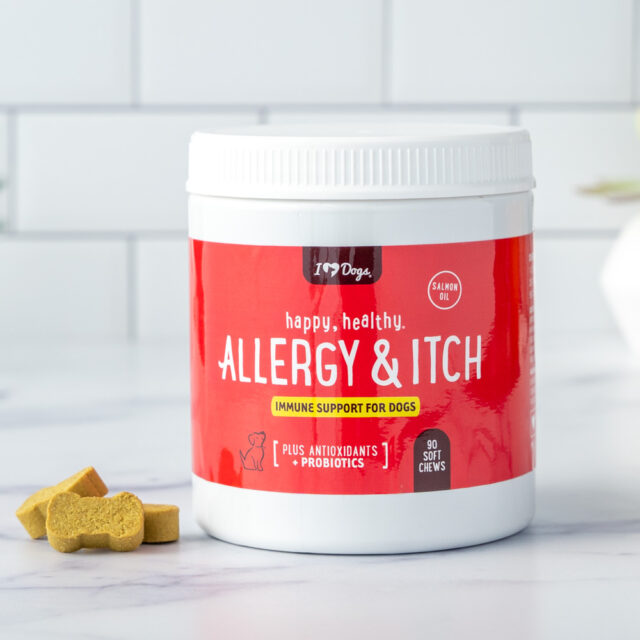
 Toledo, United States.
Toledo, United States.